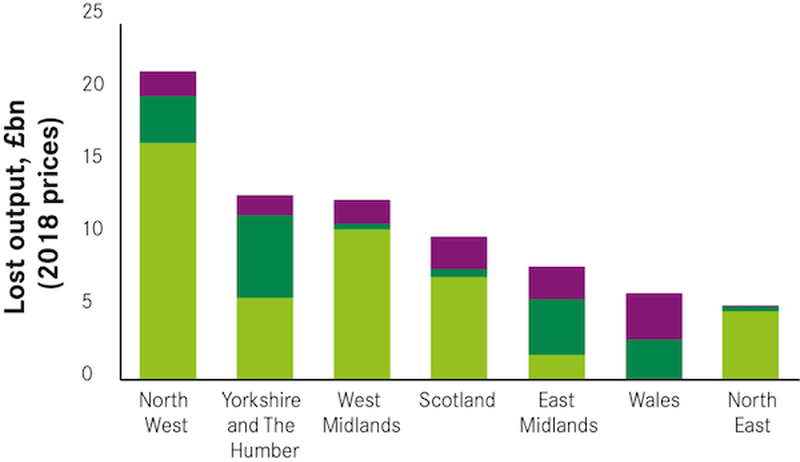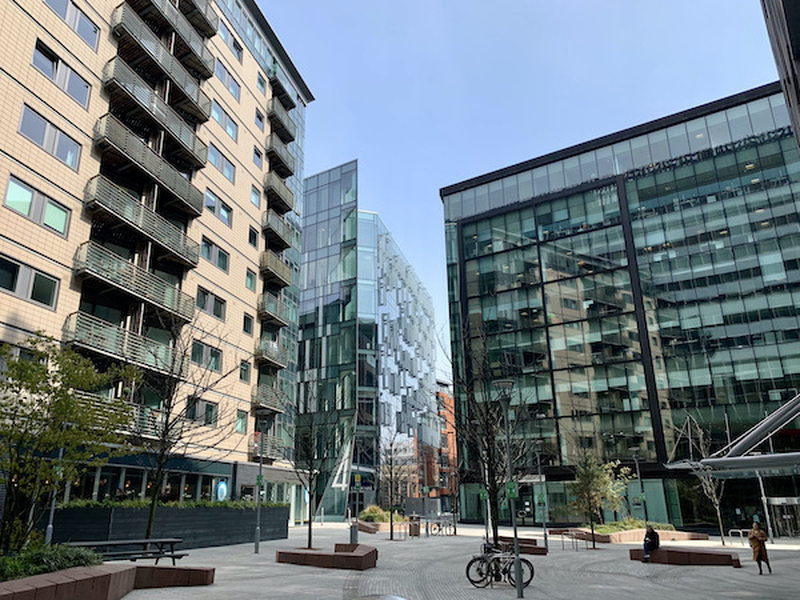Research reveals the true impact of COVID-19 on the high street
THE effects of COVID-19 have caused some cities and large towns in the North to miss out on more than six months' worth of potential sales since the pandemic began. The findings are from a report by independent think tank Centre for Cities, a research and policy institute dedicated to improving the economic success of UK cities.
There is a political imperative for the Government to act fast, as well as an economic one
Manchester is the sixth worst affected in the UK with over 41 weeks of sales lost. Leeds was also in the top ten with over 39 weeks of sales lost. Liverpool has lost 26 weeks’ worth of potential takings since March 2020.
However, the report also highlights how medium-sized northern towns have faced less difficulties. Burnley and Warrington top the chart of places with sales least affected by the pandemic with eight and 11 weeks lost respectively. The report concentrates on sales as an indicator of high street prosperity and is not intended to cover the whole of the economic impact of COVID-19.

The funding paradox
The report's findings suggest that the Government’s COVID-19 support cushioned struggling high streets from the effects of the pandemic, but was less effective in "economically stronger" places due to higher rents and a lack of custom from office workers.
However, the report claims that while retail in stronger cities may have suffered more from the pandemic, it will also bounce back more quickly. The relatively less-affected towns will face more problems in the future.
Grants made available to businesses sheltered struggling places from the worst effects of the pandemic but it is likely to have slowed, rather than solved, the problem of high street decline. Support "may have simply stored up pain for the future," the report warns, with many less prosperous places in the North and Midlands facing a wave of new business closures this year.
Vacancy rates are another indicator, with nearly one in 10 units in Manchester city centre currently unused. Sadly a higher than usual amount of food and drink businesses closed during the first year of the pandemic due to the effects of COVID-19 on the hospitality industry.
Andrew Carter, chief executive of Centre for Cities, said: "While the pandemic has been a tough time for all high streets it has levelled down our more prosperous cities and towns. Despite this, the strength of their wider local economies means they are well placed to recover quickly from the past two years."
"The bigger concern is for economically weaker places – primarily in the North and Midlands – where COVID-19 has actually paused their long-term decline.
"To help them avoid a wave of high street closures this year, the Government must set out how it plans to increase peoples’ skills and pay to give them the income needed to sustain a thriving high street.
"Many of these places are in the so-called 'Red Wall' so there is a political imperative for the Government to act fast, as well as an economic one."

The report confirmed what many people already thought to be the case - hospitality was the worst affected; in cities where more jobs could be done from home, shops and cafes that catered to office workers lost customer base; and the pandemic has triggered a long term shift towards online shopping for groceries and food and drink.
Centre for Cities recommends that Government - both central and local - develops campaigns to encourage leisure visitors back when safe to do so, and provides part-time season tickets to encourage workers back to the office in order to slow or reverse the impact on city and town centres.
Read the full Cities Outlook 2022 for more analysis from Centre for Cities.















